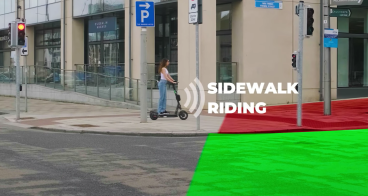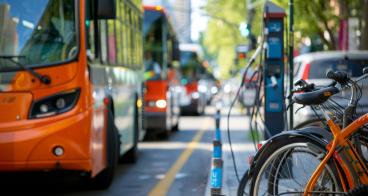Enhancing scooter parking safety with computer vision technology
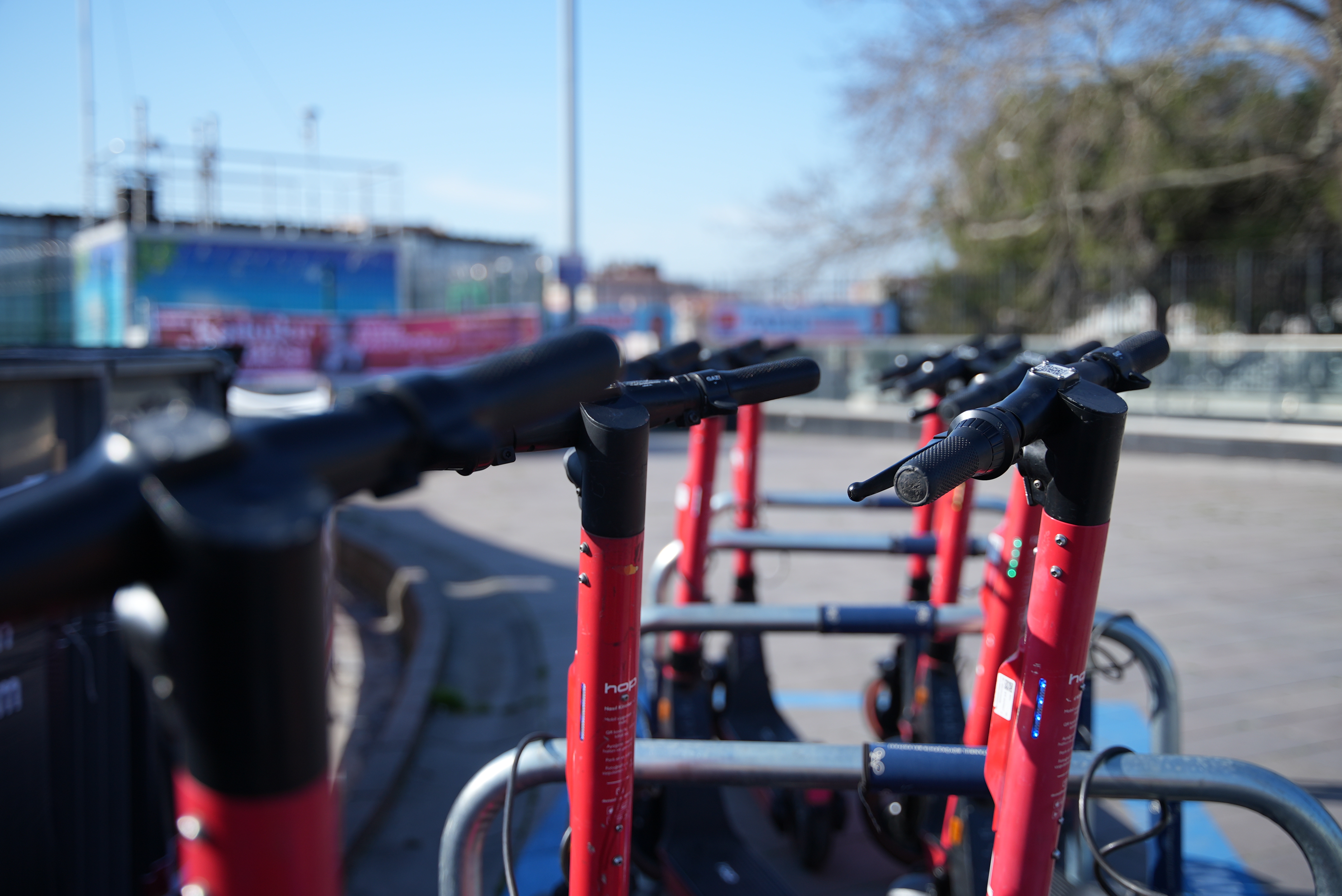
The Challenge
In Istanbul, the rise of shared micromobility services, notably e-scooters, aims to tackle urban transportation issues and promote eco-friendly commuting. In the city's shared mobility scheme, a total of 27,782 e-scooters are in use, provided by 7 licensed operators.
Like every other large city, scooter schemes face rider misuse issues in Istanbul such as sidewalk riding, collisions and disorderly parking. Circumstances of improper parking threaten pedestrians and riders alike. Disorderly parked scooters obstruct sidewalks, creating accessibility barriers for pedestrians. This poses significant challenges for individuals with visual impairments, wheelchair users, and parents with strollers. Between 2021 and 2022, eight fatalities and 899 injuries were reported due to accidents involving e-scooters.
Ensuring orderly parking is not just a matter of convenience but a fundamental aspect of pedestrian safety and urban inclusivity. Addressing these concerns requires a concerted effort from both users and regulators to promote responsible micromobility practices and uphold accessibility standards in the bustling cityscape of Istanbul.
Within the framework of SUMP (Sustainable Urban Mobility Plan) suitable parking areas have been planned to support micromobility throughout İstanbul and to prevent irregular parking in the city.
The Solution
In the realm of shared micromobility, addressing errant rider behaviours is crucial for sustainable urban schemes. Technology Luna Systems’ advanced vision data capabilities have revolutionised safety management, enabling targeted rider behaviour mitigations such as outreach, fines and service bans, but also bigger picture insights into how riders use these vehicles. These insights empower operators to refine planning, optimise parking spots, and tailor campaigns promoting responsible riding.
Luna Systems, founded in 2020, offer scalable ARAS solutions for shared and consumer mobility, aligning with the trend of software-defined vehicles. Their mission focuses on transitioning to sustainable transportation by addressing safety challenges like sidewalk riding and disorderly parking through innovative hardware and software solutions. With vision data, privacy is prioritised through measures like facial and license plate blurring, ensuring comprehensive rider behaviour understanding without compromising personal data.
Together with local e-scooter operator hop, they piloted a solution to solve the issue of disorderly parking city of Istanbul.
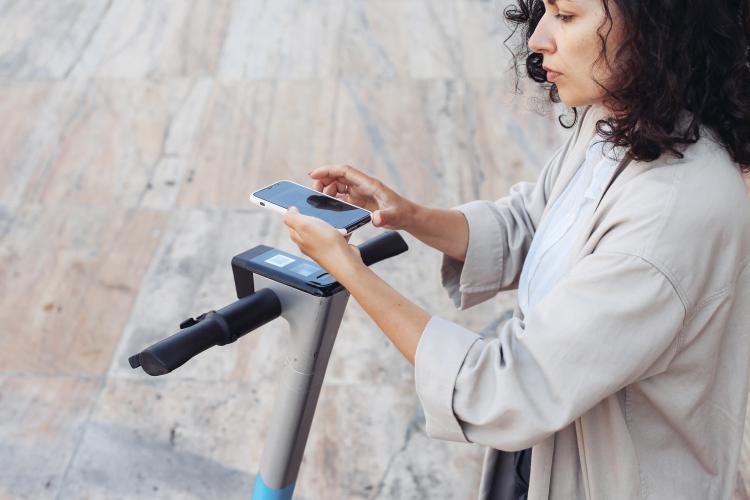
Making an impact
Luna Systems provided a simple cost-effective software-only solution which only requires the rider’s smartphone. Operators like hop typically allow riders to end their trips by capturing a photo of their parked scooter through the ride app, signalling the completion of the journey. However, these images need manual validation to ensure proper parking. Luna introduced an AI feature to the app, automating image verification and reducing operational resources for the operator.
Parking regulations vary across cities, with some having designated areas and others adopting free-floating models. In cities like Istanbul, transitioning between models, a mixed approach was necessary. Luna offered customisable AI rules tailored to each scenario, facilitating accurate parking validation in diverse urban environments.
In addition to the resources that this saves to the city, it also provides something much more valuable - a metrics-led approach to the management of the rider behaviour. As this solution scales, it will provide a useful means to benchmark the performance of safety in this area so that parking infrastructure improvements can continue to be made in a meaningful way.
In the context of the project carried out in Istanbul in partnership with hop, the following results have been determined thus far in deployed, demonstrating the accuracy of Luna’s solution:
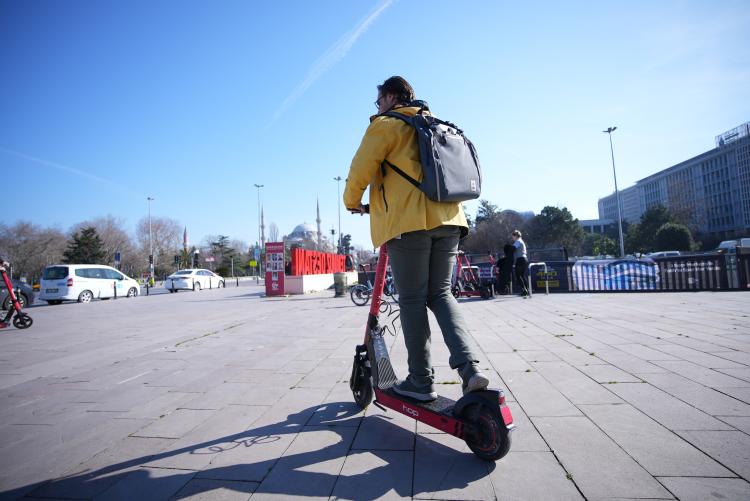
Lessons learnt
This project has had various positive outcomes:
- The utilisation of vision data ensured a comprehensive understanding of rider mindsets while upholding strict standards of data privacy through measures such as facial and license plate blurring.
- This comprehensive approach not only mitigates accessibility challenges but also fosters a positive perception of e-scooters among citizens, bolstering their confidence in incorporating this mode of transport into their daily routines.
- By automating parking verification processes, operators can streamline operations, enhance data-driven performance, and minimise resource allocation for vehicle retrieval, ultimately resulting in a cleaner urban landscape and improved accessibility of scooters for end-users.



